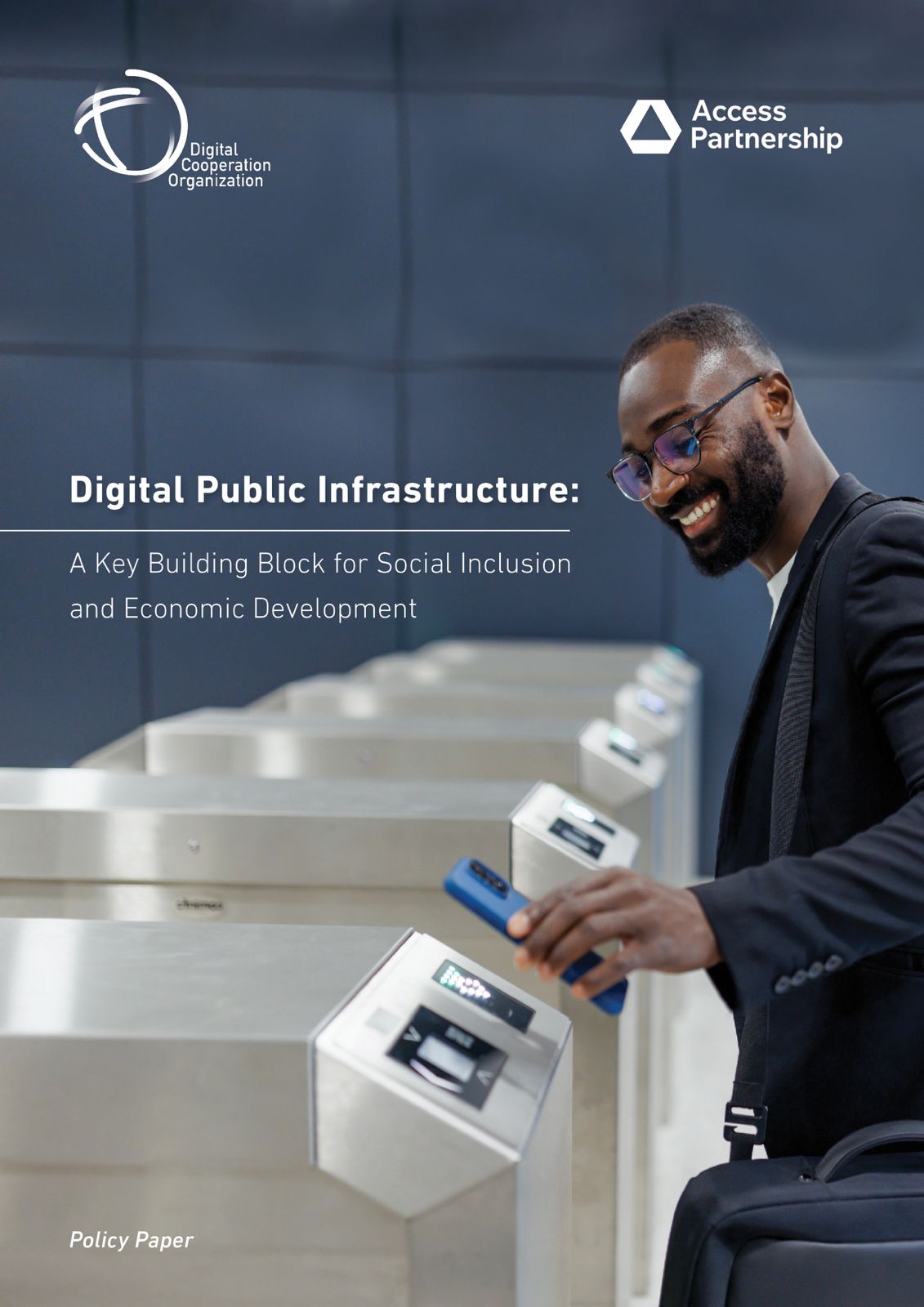
Digital Public Infrastructure
June 2025
Digital Public Infrastructure (DPI) is increasingly recognized as a cornerstone for both public and private sector service delivery, driving digital transformation and development globally. Key actors driving this narrative include international organizations such as the UN Development Programme (UNDP), the G20, the Digital Cooperation Organization (DCO), and the International Telecommunication Union (ITU), among others.
DPI’s impact spans a wide range of applications—from enhancing healthcare and social services in the public sector to enabling personalized financial services, innovative payment solutions, and improved customer experiences in the private sector. By promoting interoperability and data integration, DPI fosters more efficient, inclusive, and resilient digital ecosystems. These systems yield far-reaching benefits, including improved education, healthcare access, economic inclusion, and broader social equity, contributing to sustainable development and societal resilience.
However, the development and deployment of DPI comes with significant challenges, including concerns over data sovereignty, privacy, regulatory frameworks, and equitable access. Addressing these requires robust policies, reliable infrastructure, sustainable investment, and international alignment through frameworks like those provided by the UN and G20. This policy paper explores DPI, its opportunities and challenges, presents a framework to scale DPI adoption globally, and provides actionable recommendations for policymakers.
